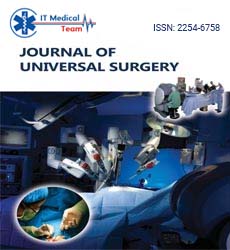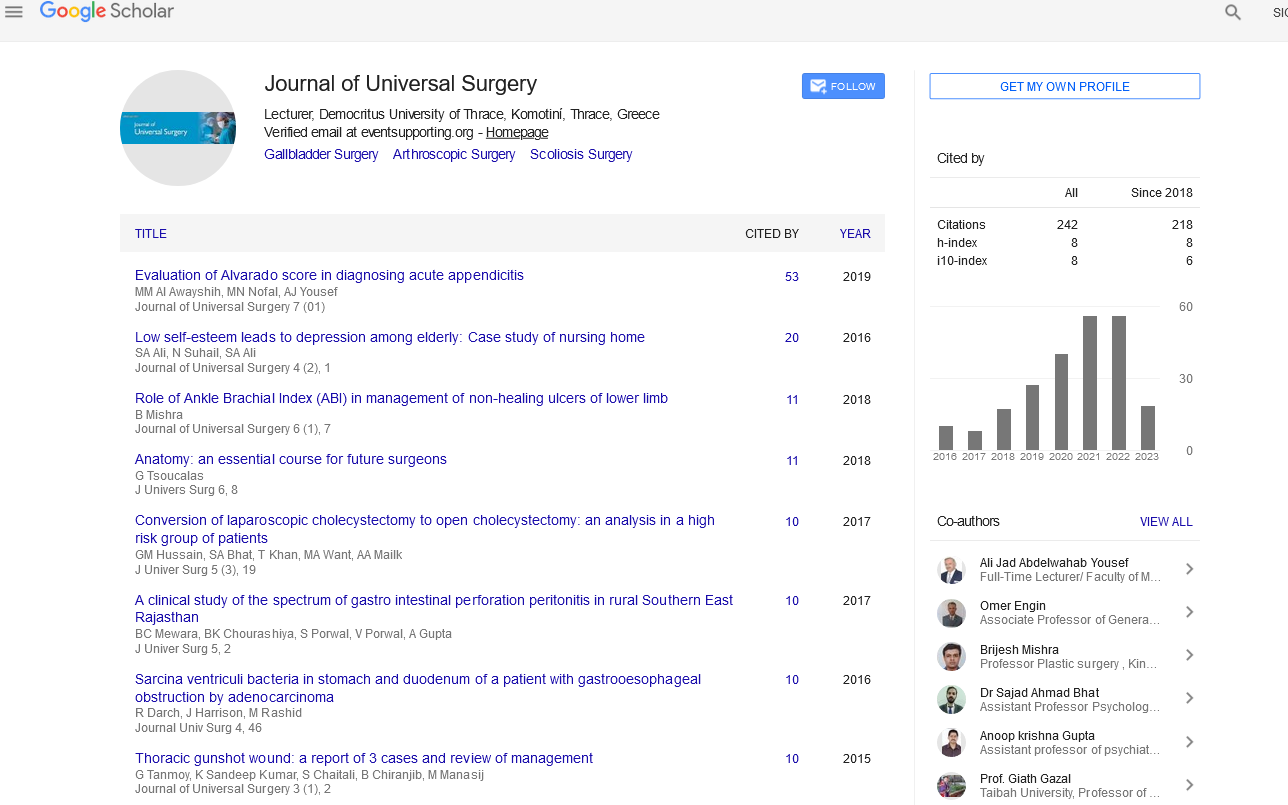Syed Faizan Hassan Shah* and Madiha Ghazanfar
Ayub Teaching Hospital, Abbottabad, Pakistan and Shifa College Of Medicine, Islamabad, Pakistan
- *Corresponding Author:
- Syed Faizan Hassan Shah
Ayub Technical Hospital
Abbottabad 22040, Pakistan
Tel: +923327240118
E-mail: faizan_shah11@yahoo.com
Received date: August 17, 2017; Accepted date: August 18, 2017; Published date: August 26, 2017
Citation: Shah SFH, Ghazanfar M (2017) Surgical Audit and Research. J Univer Surg. Vol. 5 No. 3:16 doi: 10.21767/2254-6758.100084
Introduction
Surgical audit is about measuring the effectiveness of health care that we provide to improve health standards. In case of failure, it helps to understand the facts that are causing failure. Every time audit cycle is conducted, there should be improvement in health care at the end. Research is the essence of clinical audit conducted to improve outcomes.
The audit is to look at the performance, short comings, flaws and negligence on the part of health care providers. It gives clue and feedback and needs discussion and critical commentaries with colleagues to generate annual or monthly report to strengthen a system [1].
The surgical audit is systemic analysis of surgical performance. It is conducted by clinicians to evaluate the outcomes and take necessary measures in a health system. To look into data of mortality and morbidity many steps can be taken. The data regarding morbidity and mortality, procedure/operations and training practices are integrated into clinical recordings. The surgical audit can be conducted on weekly, monthly or annually basis. It is suitable to conduct it on monthly basis chaired by departmental head listening to every member of team with open heart. The surgical audit provides us data on measuring quality of care, effectiveness of resources, mortality and morbidity, indications and contraindications of a procedure, surgical and treatment plan, evaluation of training program and significance of a test for diagnosis.
The results obtained from an audit can be integrated into research. It is essential to start a research. The research is an integration of facts from an audit. It follows an audit and every departmental audit will lead a path to research activity. The result of research are generalized and projected to whole community [2]. Both the audit and research runs side by side opening new gates of interest and opportunities.
The surgical audit is important to judge performance of surgical team and procedures. However, it is most important area of interest which is unfortunately neglected. It will open up new gates of thinking and modalities in research field. Many of the surgical operations carried out in developing countries are obsolete in developed countries and this needs special consideration by organizing audits to evaluate its benefits versus drawbacks. In addition to its role in improving departmental professional strategies it is helpful for training programs. The candidates must take keen interest in audit and research activities.
Ending note: Surgical audit is a fundamental part of modern surgical practice. From consultant to trainee, involvement in audit is not only desirable, but is increasingly becoming compulsory. The present day aim is to conduct success full audit cycles both locally and nationally to improve surgical field including training programs for new professionals leading to highly skilled research programs.
20113
References
- Gruer R, Gunn AA, Gordon DS, Ruckley CV (1986) Audit of surgical audit. The lancet 327: 23-26.
- Whiteley MS, Prytherch DR, Higgins B, Weaver PC, Prout WG (1996) An evaluation of posum surgical scoring system. Br J Surg 83: 1483-1484.





